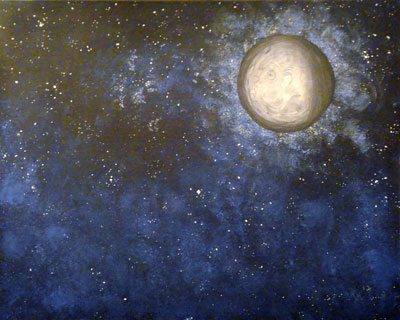All Nonfiction
- Bullying
- Books
- Academic
- Author Interviews
- Celebrity interviews
- College Articles
- College Essays
- Educator of the Year
- Heroes
- Interviews
- Memoir
- Personal Experience
- Sports
- Travel & Culture
All Opinions
- Bullying
- Current Events / Politics
- Discrimination
- Drugs / Alcohol / Smoking
- Entertainment / Celebrities
- Environment
- Love / Relationships
- Movies / Music / TV
- Pop Culture / Trends
- School / College
- Social Issues / Civics
- Spirituality / Religion
- Sports / Hobbies
All Hot Topics
- Bullying
- Community Service
- Environment
- Health
- Letters to the Editor
- Pride & Prejudice
- What Matters
- Back
Summer Guide
- Program Links
- Program Reviews
- Back
College Guide
- College Links
- College Reviews
- College Essays
- College Articles
- Back
A Brief Opinion of the Sci-Fi Genre
I've been thinking about science fiction lately. I mean, more than usual, and not only because I just watched the latest Star Trek movie. While discussing just what made science fiction so popular, I heard criticism about the genre because all of the visuals and action and technology could really be taken out and the story would remain intact. Maybe not completely as it would normally, but stripped down to the raw narrative, most stories about spaceships could be substituted for pirate ships, or trains, or so on. The robots can be a new generation of man, the aliens a new generation of foreigners, the lasers reduced to canons. In general, they say the story in itself is only clouded by the complexities of the science. Naturally, I think this is not only a gross oversimplification but also worth delving into thinking about. I really think science fiction, real classic, great science fiction requires only a few important aspects. A unique setting is the initial difference between science fiction and literature- some far off planet or futuristic version of Earth to capture the imagination, ensnare the reader, and excite the sense of curiosity, creativity, and adventure that can be sparked inside of us all. Well developed characters, too, are essential, to show that while technology may advance, people are still people. There will always be the hero, the villain, the comedic relief. This allows the reader somewhere to jump from, and a friendly face to jump with, when they are thrust into a new world. But most importantly, science fiction relies on the telling of timeless stories, those classic struggles of good versus evil, right versus wrong, man versus man. Time is so frequently a point of contention for sci-fi critics, but the futuristic societies merely exemplify the genre's foundations in the inherent power of each individual's choices, regardless of the advanced world around him. The juxtaposition of the incredible machines to the human characters doesn't limit the human's importance, it amplifies it. In spite of all the fancy gizmos and gadgets, the heart of science fiction is the raw human emotion, logic, and choice to press the button or flick the switch. Science fiction repeatedly stresses the importance of man's ability to stare in the face of disaster, whether it be some dreaded new weapon, alien race, or other mystery, and stand by his morals, the morals of his race, of his ancestors long before him or us. Some themes, the ones that seem to matter most, never fade. Whether it be in our galaxy or an adjacent one, some things are just universal.

Similar Articles
JOIN THE DISCUSSION
This article has 0 comments.
